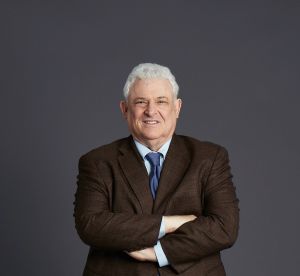Arthur Caplan - Ethical Issues on the Frontier of Organ Replacement
Join the OEC as we welcome Dr. Arthur Caplan back to continue discussing the ethical issues on the frontier of organ transplants. This is part two of a discussion he started last spring titled Ethical Issues on the Frontier of Organ Transplants.
Register HERE
Transplants are evolving to include external organs such as eyes, hands, and faces. there are many ethical issues these so-called vascularized composite allografts (VCAs) raise including who donates, managing surgery, acceptable appearance, getting sound consent, impacts on family, restoration of function, and dangerous side effects. For some artificial prosthetics may be a choice that is preferred over transplant. Costs are a huge issue as well. Consider eye transplants;
Of all the five senses losing sight is the one that individuals fear the most. Worldwide blindness has afflicted tens of millions of people each year. Historically, this has inspired researchers and doctors to try whole-eye transplants (WET).
A human cadaveric donor WET was attempted in 1969 at Methodist Hospital in Houston. The cornea, lens, and iris were transplanted but failed to restore vision (Bourne et al. 2017). The immediate future of eye transplantation both single and dual is likely to be very limited. Despite the remarkable technical achievement of an NYULangone team (Laspro et al. 2024), transplant experts and ophthalmology researchers know of a number of huge challenges that continue to make successful eye transplants ethically difficult.
Please register HERE.
More about Dr. Arthur Caplan:
Dr. Caplan is currently the Drs. William F. and Virginia Connolly Mitty Professor of Bioethics and founding head of the Division of Medical Ethics at NYU Grossman School of Medicine’s Department of Population Health in New York City.
Prior to coming to NYU Langone, Dr. Caplan was the Sidney D. Caplan Professor of Bioethics at the University of Pennsylvania Perelman School of Medicine in Philadelphia, where he created the Center for Bioethics and the Department of Medical Ethics. He has also taught at the University of Minnesota, where he founded the Center for Biomedical Ethics; the University of Pittsburgh; and Columbia University. He received his PhD from Columbia University.
Dr. Caplan is the author or editor of 35 books and more than 860 papers in peer reviewed journals. His most recent books are Vaccination Ethics and Policy (MIT Press, 2017, with Jason Schwartz) and Getting to Good: Research Integrity in Biomedicine (Springer, 2018, with Barbara Redman).
He has served on a number of national and international committees including as chair of the National Cancer Institute Biobanking Ethics Working Group; chair of the Advisory Committee to the United Nations on Human Cloning; and chair of the Advisory Committee to the Department of Health and Human Services on Blood Safety and Availability. He has also served on the Presidential Advisory Committee on Gulf War Illnesses; the Special Advisory Committee to the International Olympic Committee on Genetics and Gene Therapy; the Special Advisory Panel to the National Institutes of Mental Health on Human Experimentation on Vulnerable Subjects; the Wellcome Trust Advisory Panel on Research in Humanitarian Crises; and as the co-director of the Joint Council of Europe/United Nations Study on Trafficking in Organs and Body Parts.
Dr. Caplan has served since 2015 as a chair of the Compassionate Use Advisory Committees (CompAC), independent groups of internationally recognized medical experts, bioethicists, and patient representatives that advise Johnson & Johnson’s Janssen Pharmaceuticals on requests for compassionate use of its investigational medicines.
Dr. Caplan is a regular commentator on bioethics and health care issues for WebMD/Medscape, WGBH radio in Boston, WOR radio in New York City, and KNX-CBS in Los Angeles. He appears frequently as a guest and commentator on various other national and international media outlets.
Dr. Caplan is the recipient of many awards and honors including the McGovern Medal of the American Medical Writers Association and the Franklin Award from the City of Philadelphia. He was a USA Today 2001 “Person of the Year” and was described as one of the ten most influential people in science by Discover magazine in 2008. He has also been honored as one of the fifty most influential people in American health care by Modern Health Care magazine, one of the ten most influential people in America in biotechnology by the National Journal, one of the ten most influential people in the ethics of biotechnology by the editors of Nature Biotechnology, and one of the 100 most influential people in biotechnology by Scientific American magazine.
During the COVID-19 pandemic, he co-directed an advisory group on sports and recreation for the U.S. Conference of Mayors, created a working group on coronavirus vaccine challenge studies, developed an ethical framework for distributing drugs and vaccines for J&J, and helped develop rationing policies for NYU Langone Health and many other health systems. He was a member of the WHO advisory committee on COVID-19, ethics, and experimental drugs/vaccines, and he helped set policy for WIRB/WCG for research studies. He was an adviser to Moderna, Inc., and Accenture. He continues to serve on the NCAA Sports and COVID-19 Committee.
Dr. Caplan received the Patricia Price Browne Prize in Biomedical Ethics for 2011. In 2014, he was selected to receive the Public Service Award from the National Science Foundation/National Science Board, which honors individuals and groups that have made substantial contributions to increasing public understanding of science and engineering in the United States. In 2016, the National Organization for Rare Disorders (NORD) honored him with its Rare Impact Award; that year he also received the Food and Drug Law Institute’s Distinguished Service Leadership Award and the American Society for Bioethics and Humanities’ Lifetime Achievement Award. In 2019, he was honored by the Reagan-Udall Foundation for the FDA with its Innovation Award.
Dr. Caplan holds seven honorary degrees from colleges and medical schools


